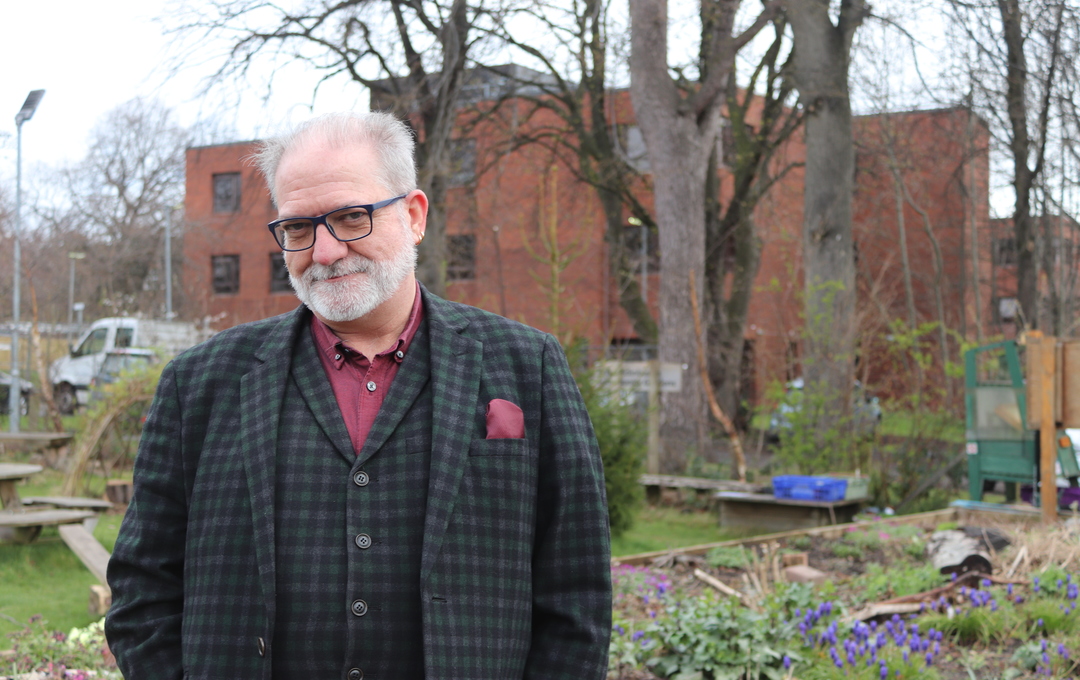Keeping lived experience at the heart of our work

As we close out Recovery Month, our CEO Ewan Aitken reflects on the power of sharing experience and stories, and how it can offer healing.
One of the great privileges of my job is being privileged to hear people tell of their journey from truly tough realities to a place of hope. It’s not just the content of the story but the fact they have got to a place where they’re ready to tell their story in public, in all its rawness and vulnerability. Telling the story of such journeys is not a requirement for change, but feeling able to is often a sign change is happening.
One way I tend to hear these stories is when I meet with new staff and ask them how they came to work with us. The answer is often “well, I came here to get some support and was helped to become a volunteer, did some sessional work and then was encouraged to apply for a job with you.” Or ,“you said lived experience of the issues involved was an advantage in the job advert, and this is my story...”
Right from our inception as an organisation over 50 years ago, we have understood how real life experience is often the best place to start supporting others facing the same challenges. If you’ve been on your own recovery journey – whether that’s from substance use, homelessness, poverty, the justice system, or the many other struggles we offer support with – it gives you a unique understanding of the challenges and triumphs that can come along the way. It’s why our first project was the creation of a community where shared experiences and peer support were the starting point for change. It’s why today, over 50 years later, we still value the wisdom those kinds of experiences can bring to understanding what the journey to flourishing might look like and involved; including the days when the journey feels like it’s going backwards not forwards, and the times when just standing still, as in things not getting worse, is in itself the sign of progress.
The idea of putting lived experience at the heart of what we do is not new, nor is it unique to Cyrenians. It is an idea which has been around in popular culture since the 1970s, but goes back much further, to at least 19th century German thinking. The argument was made that there are experiences (Erfahrung is the German word) we can all share even if we are not in the same place - we can all go to a football match and know what that was like in general terms - and there are experiences which are much more difficult to share because they are held in our perception of the experience (Erlebnis is the German word, which includes the word Leben or life). What is being articulated is how we feel about what we’ve experienced, and how that feeling impacts how we then experience other life events, positively or negatively.
It’s why two people can be in the same event and be affected very differently and have almost opposite feelings about their experience of the event. It’s also why, in some cases, it’s very difficult to share an experience with someone who has not had that same experience. And, as well, it’s why any use of life experience in recovery or any other context must be done very sensitively and carefully. Life experience can be a valuable tool, but it’s important to not assume everyone has the same experience of similar situations.
Of course, all of us have experiences of life which then impact our future responses. There is danger in labelling events in some people’s lives as “lived experience” with what might then be negative connotations or exposing them to having to constantly revisit painful memories or difficult places in their lives as a result. Nobody owes us their story, or should be singled out for their past. But if we can take experiences which have had huge negative consequences for someone, and use them as the basis of affirmation, understanding, and the building of trusted relationships with others through shared experience, then good things can happen, and lives can flourish when that perhaps once seemed impossible.
Support us
Help our relationship-led work reach further
At the heart of our work is providing long-term, stable support that's there through every step of your recovery journey. You can help us provide lasting support by donating here.